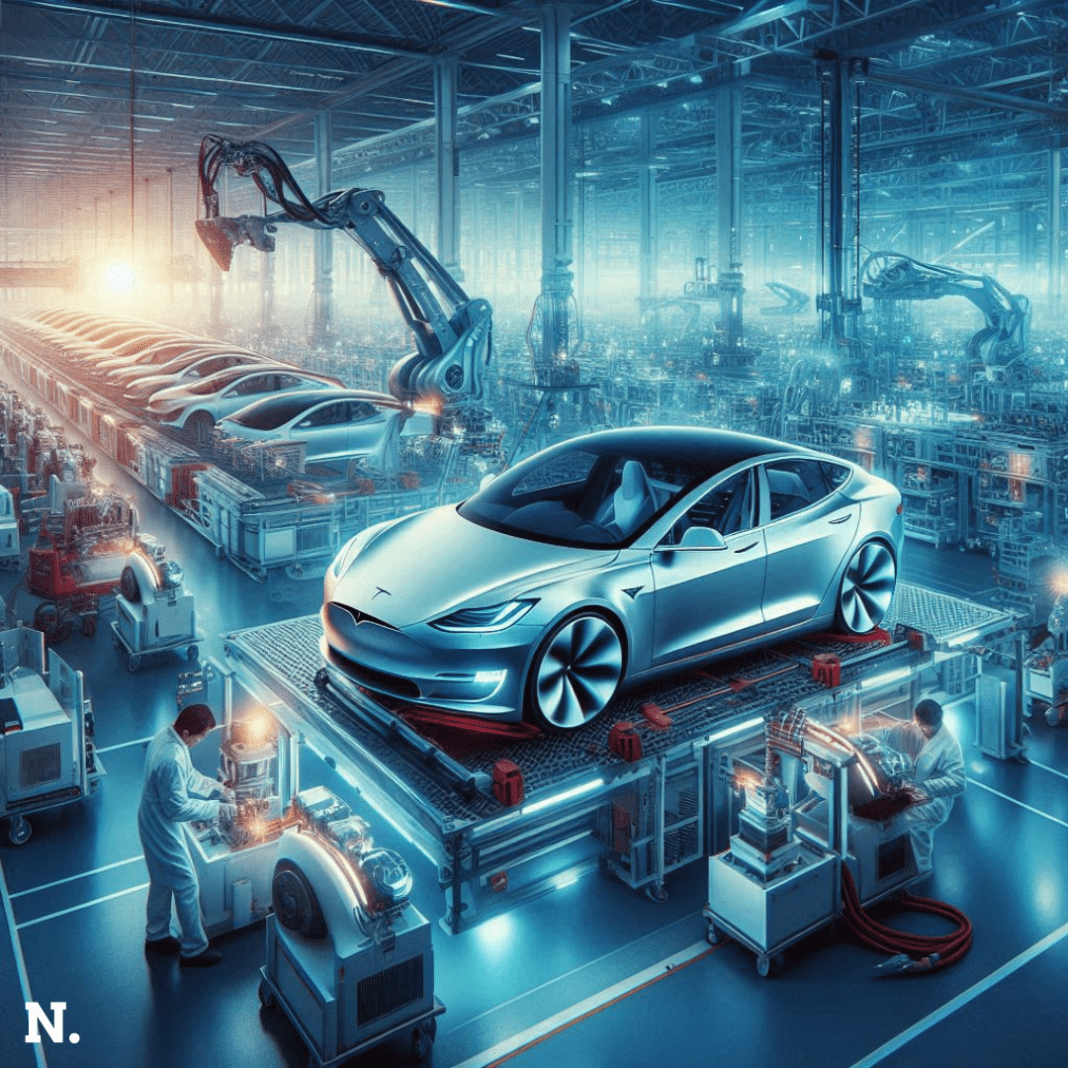Tesla, led by Elon Musk, has stepped back from its push into the Indian EV market. According to a report, Indian officials have noted a significant reduction in contact from Tesla executives. This has cooled hopes of a substantial investment in the country. The development comes as Tesla faces mounting global pressures and increased competition from China. This development comes at a time when Tesla faces a confluence of global pressures and heightened competition, particularly from China.
Waning Interest of Tesla in India
Recently, Tesla was really excited about setting up a factory to make electric cars in India. But now, they seem less interested. People who know about it say Tesla’s talks with Indian officials have completely stopped. This happened after Elon Musk decided not to visit India in April as he had planned. Indian leaders had high hopes for Tesla’s arrival because they thought it would make a big difference for electric cars in the country. They believed Tesla would help more people buy electric cars and also start making them in India, which would create jobs and help the environment. But now, India is focusing more on other car companies already here.
Financial Constraints and Global Challenges
The shift away from India coincides with a series of financial and operational challenges for Tesla on a global scale. The automaker recently reported its second consecutive quarterly decline in global deliveries, a stark contrast to its previous growth trajectory. Compounding this issue is the fierce competition Tesla faces in China. The market has become increasingly saturated with local EV manufacturers offering competitive alternatives.
China, being the world’s largest EV market, plays a crucial role in Tesla’s global strategy. However, Chinese EV makers like BYD and NIO have made significant strides, eroding Tesla’s market share. The Chinese government’s support for homegrown companies has intensified the rivalry. Their competitive pricing and innovation pose a formidable challenge for Tesla.
In a bid to navigate these turbulent waters, Musk announced job cuts in April. This signals a broader strategy to streamline operations and cut costs. The sales performance of Tesla’s flagship Cybertruck has stalled. Construction delays at its planned plant in Mexico have added to the company’s woes. Musk’s cancellation of his India visit due to “pressing issues,” followed by his appearance in Vietnam, raised eyebrows. This has fueled speculation about the company’s strategic priorities.
India’s Shift to Domestic EV Production
In light of Tesla’s apparent retreat, the Indian government is recalibrating its strategy to boost domestic EV production. Key players like Mahindra & Mahindra and Tata Motors are now at the forefront of India’s EV drive. These companies are expected to spearhead efforts to meet the growing demand for battery-powered vehicles in the country.
Mahindra & Mahindra, a stalwart in the Indian automotive industry, has made significant investments in electric mobility. The company has unveiled plans to expand its EV lineup, leveraging its extensive distribution network and manufacturing expertise. Similarly, Tata Motors has been proactive, launching models like the Tata Nexon EV. This model has garnered a positive response from consumers.
While Tesla’s potential entry into India was expected to accelerate EV adoption. The current scenario suggests a more gradual approach led by local manufacturers. India’s EV market remains in its nascent stages. Electric cars accounted for just 1.3% of total vehicle sales in 2023. The high upfront costs of EVs and a sparse network of charging stations remain significant barriers to widespread adoption.
Future Prospects and Policy Incentives
Even though things aren’t going so well right now between India and Tesla, Indian officials are still hoping Tesla might change their mind later. If Tesla decides to try again in the future, they could get special tax breaks from India to help them sell more electric cars here. India really wants to be a big part of the electric car market around the world, whether or not Tesla is involved.
India is trying hard to get more people to use electric cars. They have a plan called FAME that gives money and rewards to companies and people who buy electric cars. This makes it easier for everyone to afford electric cars. Also, India wants to build more places where electric cars can charge up. This will make it easier for people to use electric cars because they won’t have to worry about running out of power.
Tesla deciding not to go ahead in India shows how tricky it is for big companies to make choices with all the competition and rules around the world. As India gets better at making electric cars of its own, there are challenges and chances for everyone involved in making electric cars. Things are always changing, so it’s important for companies to be smart and keep investing in new ideas and ways to make cars better and easier to use.





